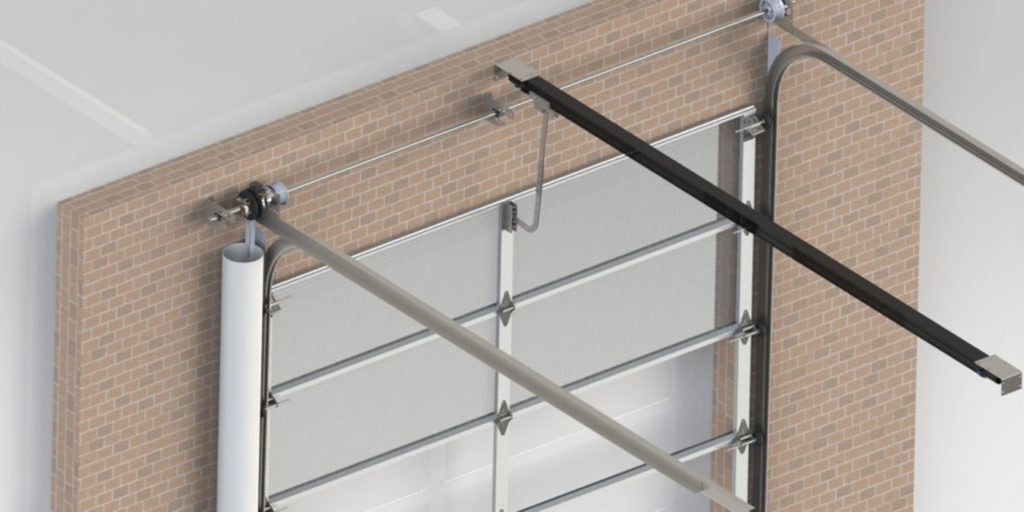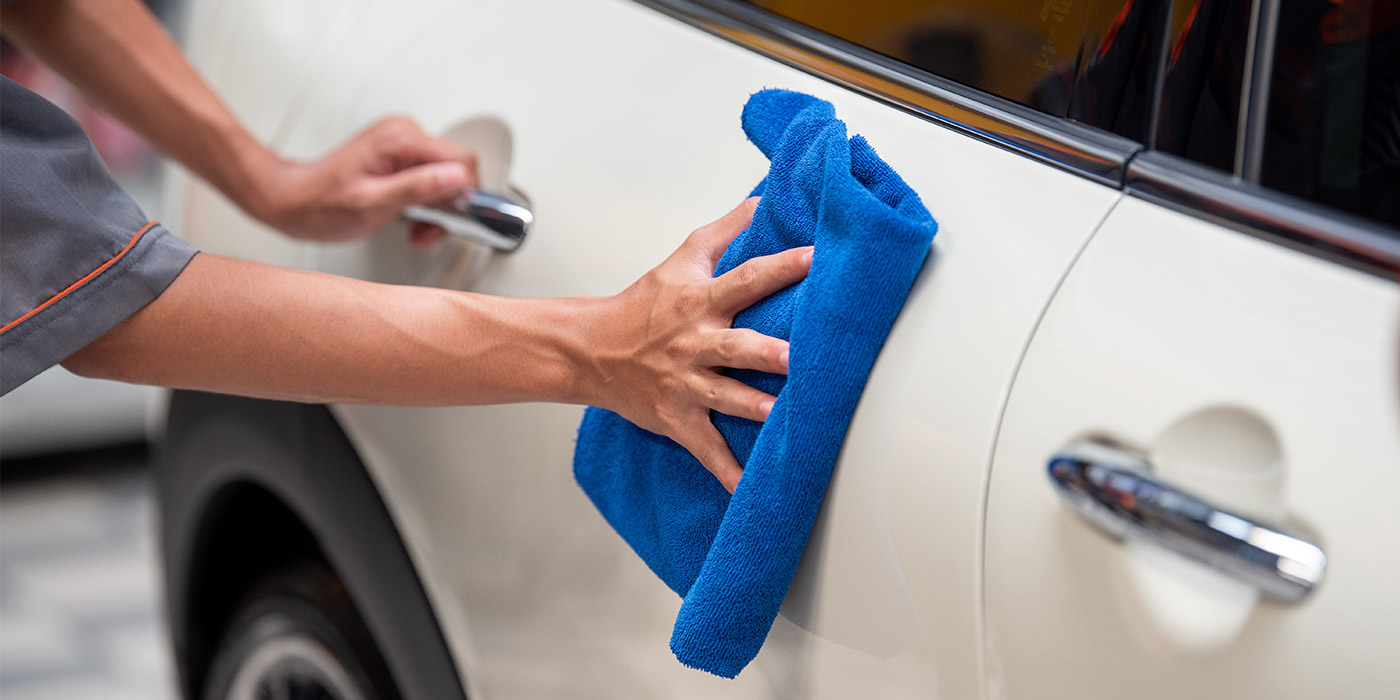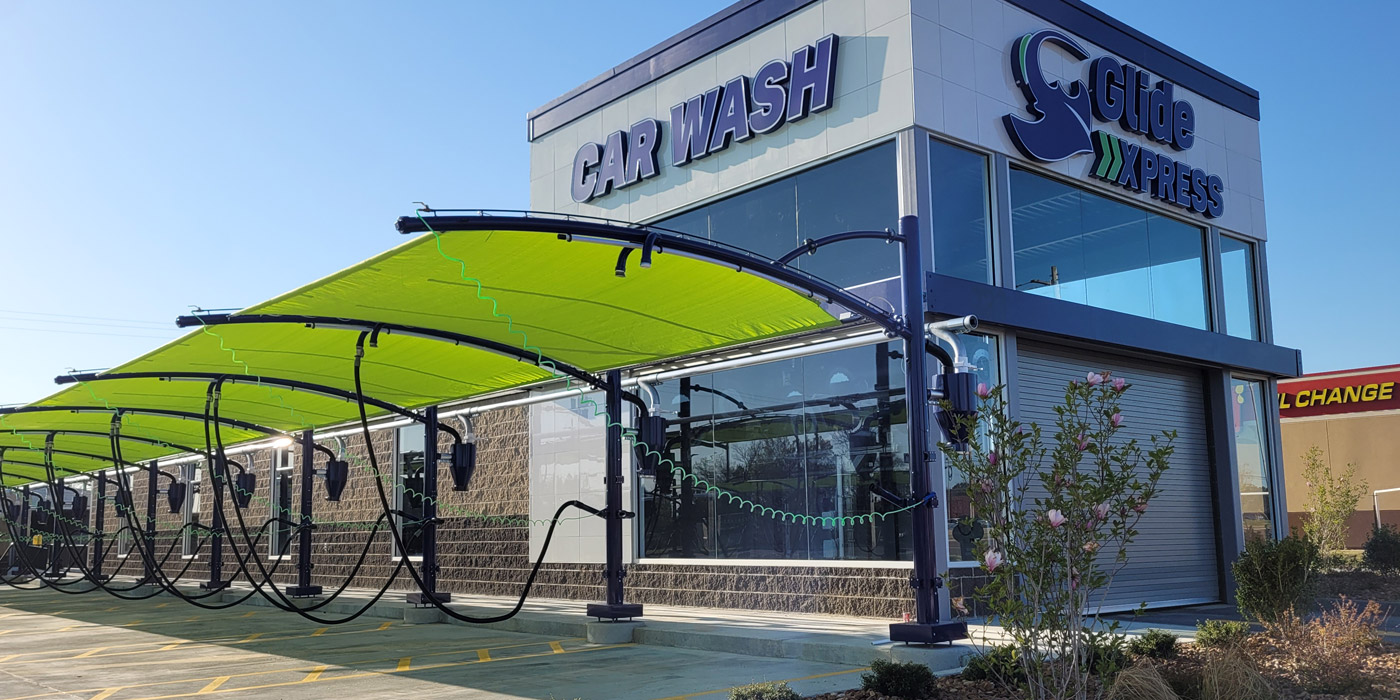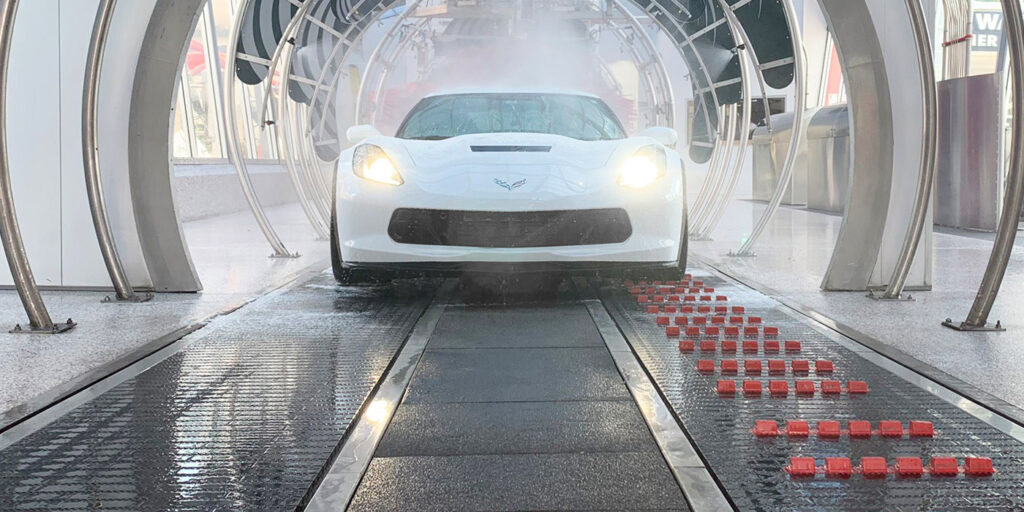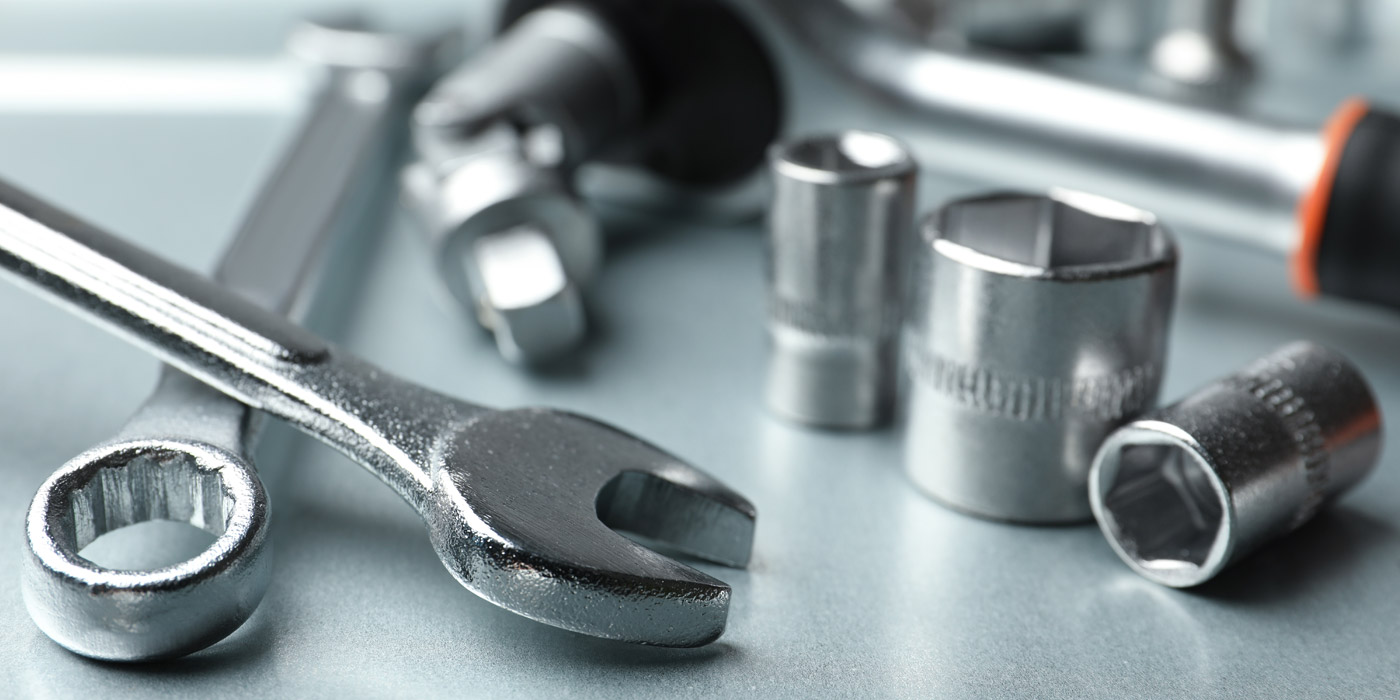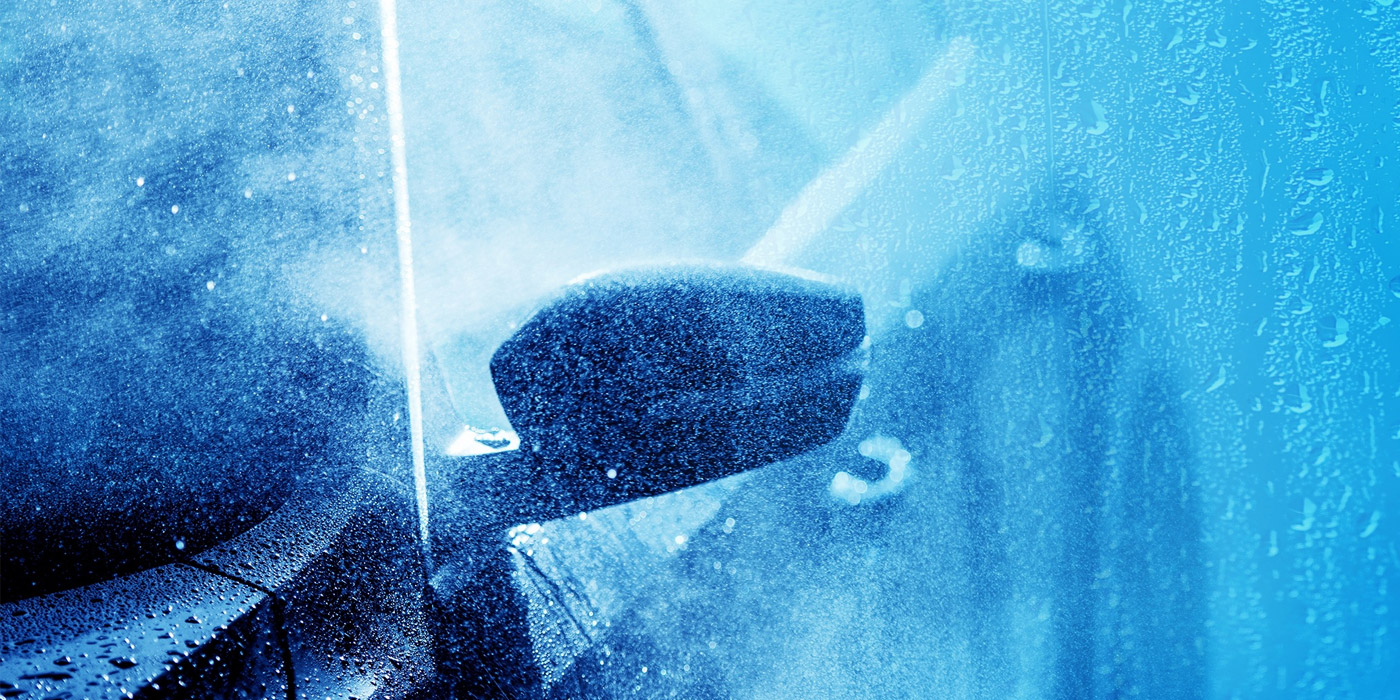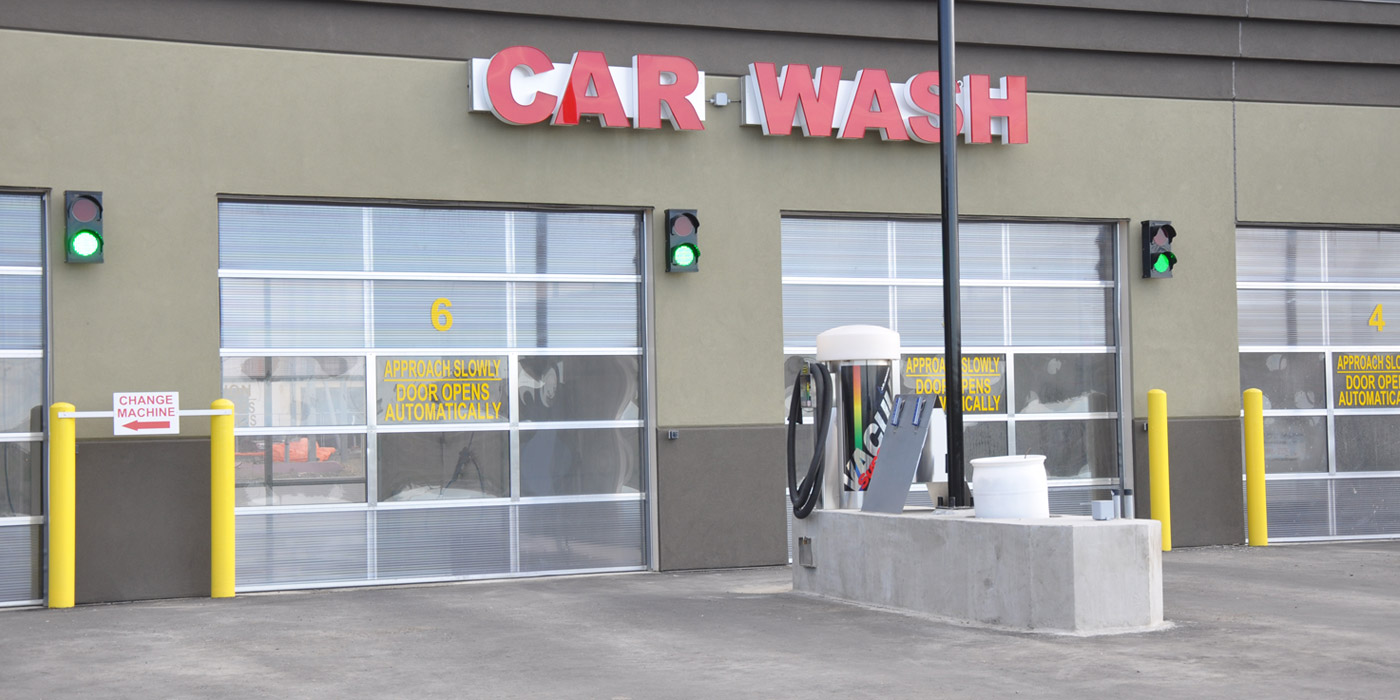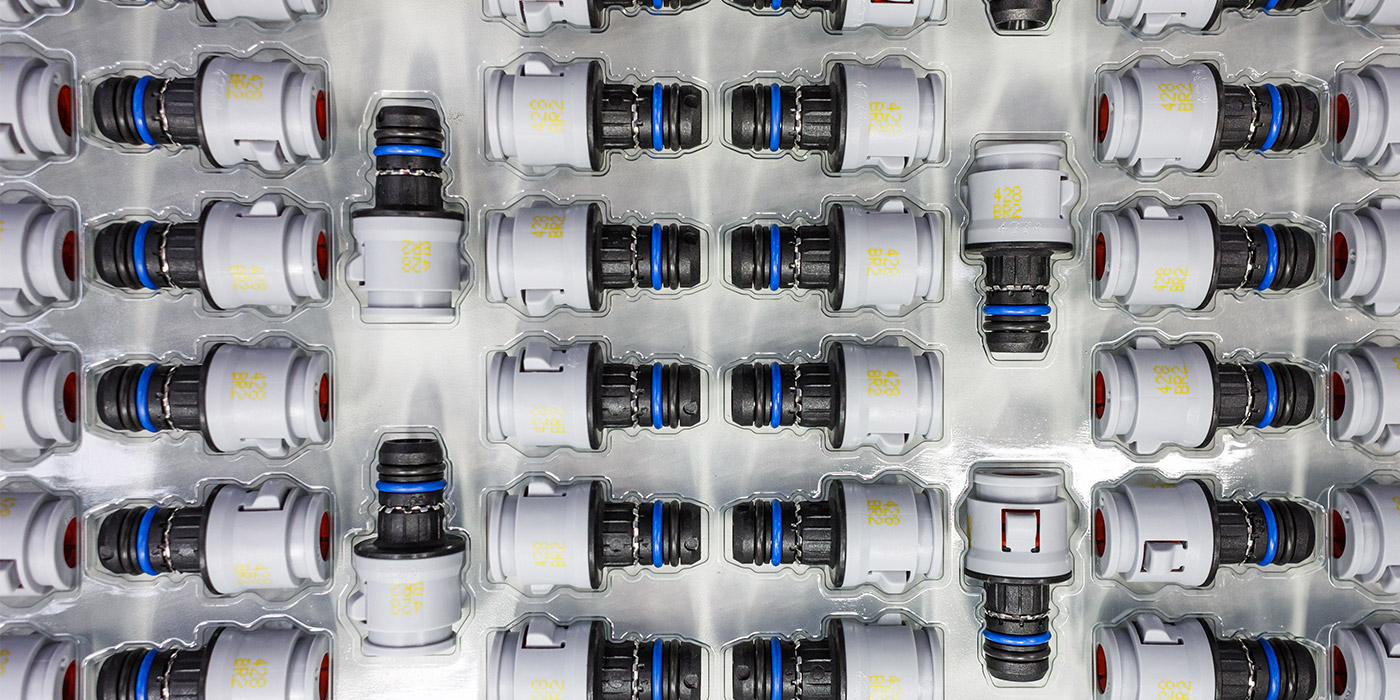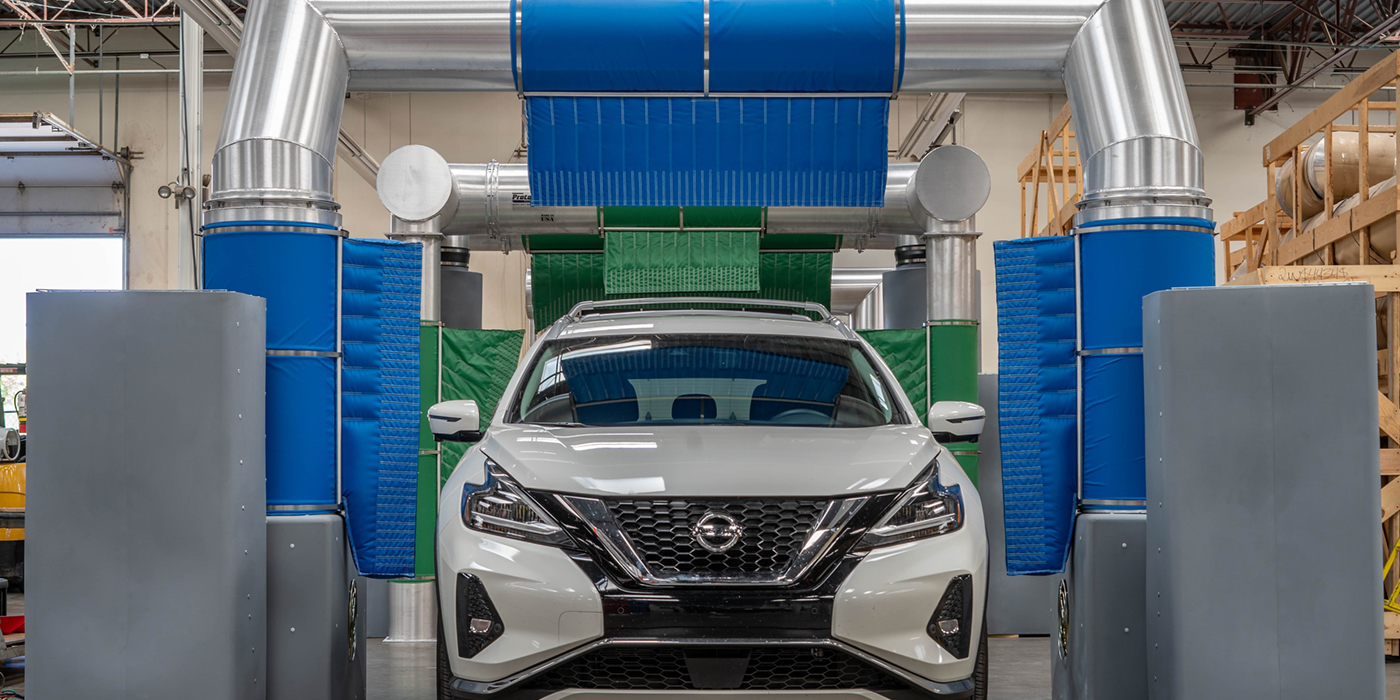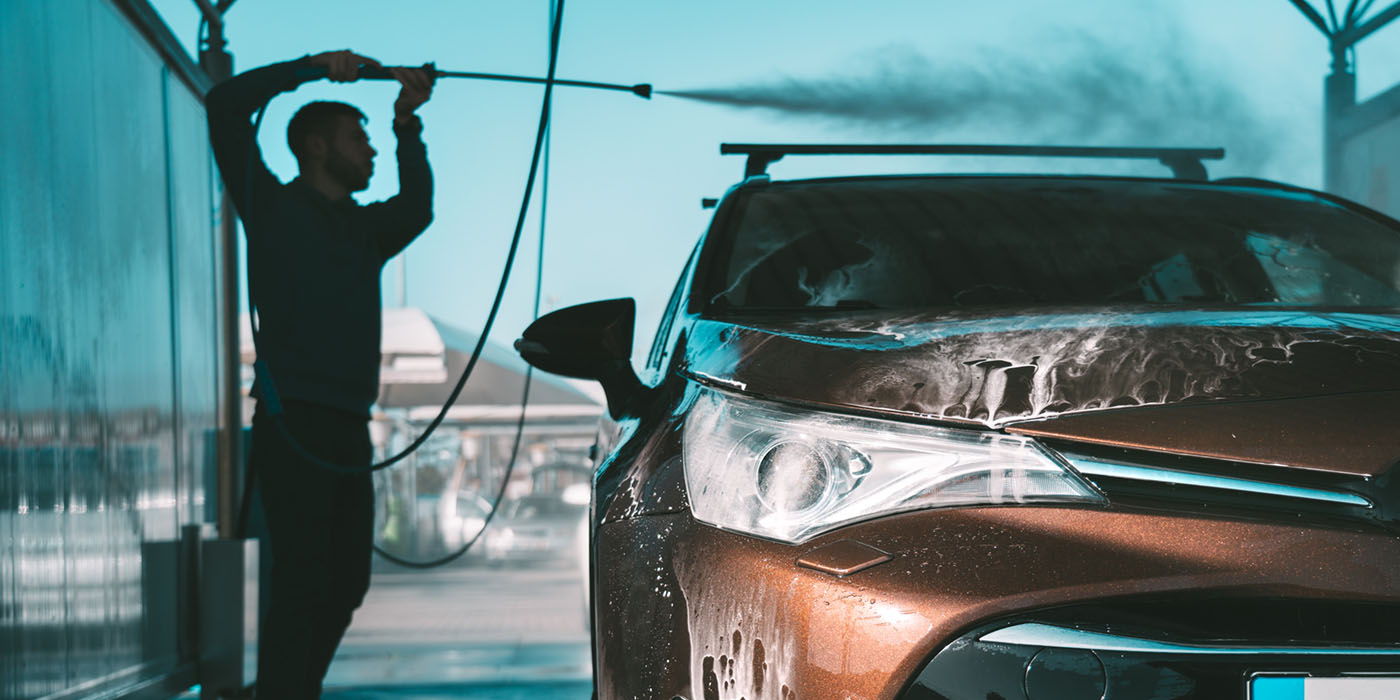There is more to a carwash door than meets the eye. Today’s leading carwash doors serve function, purpose and aesthetic appeal to most any carwash. But, as the cold months are approaching, how can operators ensure that doors and their components remain effective during peak season?
We reached out to the carwash door experts to find out.
Open or closed?
Simply put, as Kevin Baumgartner, president of American Garage Door Supply Inc., states, “If your doors aren’t operating, then you’re closed.”
The first consideration when making sure your carwash doors are ready for winter is to verify that your carwash door is just that — built for a carwash. As Baumgartner adds, there are big differences that make carwash doors unique from other types of commercial use doors. These details include:
- Sloped surfaces and the absence of water-traps in section construction
- Panel construction that is well-constructed and adapted to the abusive conditions
- Specifically designed for wet and corrosive environments
- Heavy-duty, rust-resistant hardware
- Can withstand heavy use, such as constant opening and closing
- Durable enough to handle internal (chemical, moisture) and external (sun, snow, ice, sleet, wind, extreme temperatures, etc.) exposures.
Keeping the doors open to your business means protecting equipment from external exposures as well. In some areas of the country, carwash doors need to be relied upon during sub-freezing temperatures just as they are for hot summer days. In extreme temperatures especially, speed and reliable functionality are key.
“Having doors on your carwash allows you to close off the bay to keep heat inside the bay and protect your equipment from freeze-ups. However, it is important to remember that your bay is losing heat any time the door is open, so it is important to invest in a door and operator package that will open and close the door at higher speeds compared to your typical commercial door,” advises Josh Hart, president of Airlift Doors Inc., adding that keeping heat inside also helps reduce energy bills.
Using a polycarbonate door and pneumatic opener, continues Hart, can typically operate the door at approximately 18 to 24 inches per second, and using a high speed roll up door can achieve speeds of 34 inches per second.
Door prep for the season
Visual inspection each day and test cycling your carwash doors will help to identify any abnormalities in performance. These inspections and test cycles are critically important for carwashes that keep their doors open during the milder spring and warmer summer months. In addition to checking for smooth openings and closings, operators will also want to listen for any unusual noises that might suggest a jam or an obstruction.
“The biggest mistake people make is not testing their doors before the first real freeze of the season,” notes Hart.
Doors are the first line of defense against equipment freeze ups. Preparation and preventative, ongoing maintenance should be part of your carwash door plan all year-round. If not, the cost to repair your doors might just be the tip of the winter iceberg when considering the cost of new carwash equipment or repairs from freeze-ups that could have been avoided.
So, is your carwash ready for the winter rush?
Related: Carwash Connection: Winterizing carwash doors
“Being ready means that you have gone through door inspections ahead of time. You have made sure the doors are operating properly and cleaning has been done so they look good going into the busy season. Additionally, you have cycled your doors at a rapid pace to simulate the high-peak periods,” explains Baumgartner, also noting that you will want to make sure your doors are plum, flush and aligned, lubricated and operating smoothly.
In addition to visually inspecting the door’s working components, fix any damaged areas, such as holes and cracks in the door’s sections or panels. These imperfections and damage will only get worse — never better — with time and extreme temperatures.
Winter door prep also involves stocking up the shelves with replacement parts. Rollers, hinges, fasteners, chains, belts and other working components that are susceptible to wear and tear are all good replacement parts to stock and have at the ready in case of a winter emergency. A solid relationship with a door vendor, supplier and technician never hurts either.
Hart recommends checking the door’s weather-stripping closely. “The door is designed with a perimeter seal around its top, sides and bottom. If any of these are missing or show signs of wear or tear, it is best to replace them so you are not allowing cold air into the bay when the door is closed,” he says.
Proper lubrication is another winter prep best practice, according to our experts. Operators must make sure that their carwash doors and operator hardware are properly lubricated.
“Refer to your owner’s manual for your products, and add oil or grease to the components that require lubrication. Properly lubricated equipment is much less likely to accumulate ice buildup and will keep things running more smoothly,” explains Hart.
Avoid the big freeze
Another factor to consider as Old Man Winter approaches is to remember that the winter season brings more moisture in the form of snow, freezing rain, sleet, hail and ice that will not simply dry from sunlight and heat as it does during the summer months. Therefore, it is vitally important to eliminate any water from entering the door system.
According to Hart, if you are using pneumatic openers, it is important to drain your compressor regularly to keep water from the air lines. “You can also add an inline air dryer before your regulator on the control panel to reduce excess moisture,” he notes.
Ice and snow buildup in critical areas of a door can not only cause damage to the door and stop it from operating properly, but it could also cause a complete shutdown of your wash, costing the business as well as its employees money and leaving customers disappointed and frustrated. Although the season of giving might not gift your location with any natural heat during the upcoming winter months, there is always manufactured heat.
“Heat is the best medicine to help keep those [critical working areas of doors] clear of ice and snow,” educates Baumgartner. “If you have floor heat, even better. We have customers who have actually plumbed their floor heat around their door jams.”
Stay ahead and be a better door buyer
A common mistakes noted by the experts is that operators put off door maintenance or door replacement until the winter when it becomes obvious a repair or new installation is needed. In addition to the difficulties of working outside in extreme low temps, there are other factors at play that show it is better to be proactive with door maintenance, repairs and replacement than reactive.
Particularly with regards carwashes in the northern U.S., you can start to protect your wash and its equipment from the beginning: at carwash door procurement. Reach out to several manufacturers and ask the critical questions needed. Your questions should include, “What type of materials were used to construct the door and its hardware?”
According to Hart, most newer door systems have options for components that are less likely to succumb to the effects of cold weather than steel garage door components, for instance.
“Ask your supplier or the manufacturer of the products about components made out of alternative materials, such as plastic hinges, plastic track or fiberglass materials versus steel. If you are having issues with ice buildup, many of these components can be converted from steel fairly easily without looking at a completely new door package,” says Hart.
According to Baumgartner, stainless steel components and other impervious materials are also effective.
Wintertime is also door manufacturers’ and repair technicians’ busy time as well. Even if you can get a repair tech to your site in a timely fashion, if it’s too cold outside to work on the door, proper installation and repair might suffer.
“Doors are hard to work on in the cold,” confirms Baumgartner. “For instance, the weather-strip of the door gets hard from repetitive use in the winter, making them difficult to remove and replace compared to completing this task in the warmer months. Get ahead of these repairs … [because] it’s monumentally important.”
From purchasing the right door for your climate to regular, daily inspections, carwash doors require special attention and care if you are interested in running a profitable business. Ask the right questions from the start, and you’ll avoid the wrong situations in the winter. Then, you can shut the door on Old Man Winter, and the potential negative consequences he brings will just melt away.

